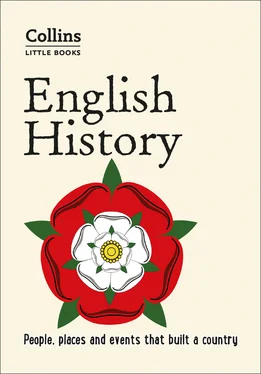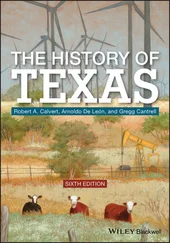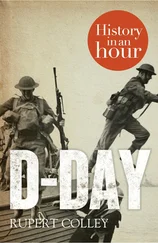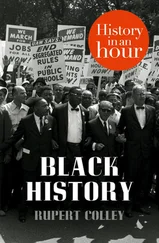
Copyright
HarperCollins Publishers
Westerhill Road
Bishopbriggs
Glasgow
G64 2QT
First Edition 2018
© HarperCollins Publishers 2018
Collins® is a registered trademark of HarperCollins Publishers Limited
www.collins.co.uk
A catalogue record for this book is available from the British Library
Author: Robert Peal
All rights reserved under International and Pan-American Copyright Conventions. By payment of the required fees, you have been granted the non-exclusive, non-transferable right to access and read the text of this e-book on screen. No part of this text may be reproduced, transmitted, downloaded, decompiled, reverse engineered, or stored in or introduced into any information storage and retrieval system, in any form or by any means, whether electronic or mechanical, now known or hereafter invented, without the express written permission of HarperCollins.
HarperCollins does not warrant that www.collins.co.ukor any other website mentioned in this title will be provided uninterrupted, that any website will be error free, that defects will be corrected, or that the website or the server that makes it available are free of viruses or bugs. For full terms and conditions please refer to the site terms provided on the website.
Source ISBN: 9780008298135
Ebook Edition © July 2018 ISBN: 9780008306526
Version 2020-01-22
HarperCollinsPublishers has made every reasonable effort to ensure that any picture content and written content in this ebook has been included or removed in accordance with the contractual and technological constraints in operation at the time of publication.
Contents
Cover
Title Page
Copyright
Introduction
English History
10,000 BC | Prehistoric England
3,000 BC | Stonehenge
AD 43 | The Romans
AD 61 | Boudicca
410 | Legend of King Arthur
400s | Anglo-Saxons
597 | The Arrival of Christianity
793 | Viking Raids
899 | Alfred the Great
937 | Rex Angloram
1042 | Edward the Confessor
1066 | King Harold
1066 | Battle of Hastings
1060s and 70s | Norman Conquest
1086 | Domesday Book
1170 | Murder of Thomas Becket
1204 | Eleanor of Aquitaine
1215 | King John and the Magna Carta
1200s | Robin Hood
1265 | The first Parliament
1283 | The Conquest of Wales
1337 | The Hundred Years War
1348 | Order of the Garter
1348 | The Black Death
1381 | The Peasants’ Revolt
1387 | The Canterbury Tales
1415 | Agincourt
1459 | The Wars of the Roses
1483 | The Princes in the Tower
1485 | The Battle of Bosworth Field
1509 | Henry VIII
1534 | Anne Boleyn
1534 | The English Reformation
1547 | Henry VIII’s death
1553 | Mary I and the Counter-Reformation
1558 | Elizabeth I
1580 | Sir Francis Drake
1587 | Mary Queen of Scots
1588 | The Spanish Armada
1590 | Shakespeare
1603 | King James VI and I
1605 | The Gunpowder Plot
1629 | Charles I and Parliament
1642 | The English Civil War
1649 | Regicide
1649 | Cromwell’s Commonwealth
1660| Restoration
1666 | Great Fire of London
1687 | Sir Isaac Newton
1688 | The Glorious Revolution
1707 | The Act of Union
1714 | The House of Hanover
1721 | Britain’s First Prime Minister
1739 | Highwaymen
1740 | Rule, Britannia!
1745 | Jacobite Uprising
1755 | Dr Johnson’s Dictionary
1763 | The Seven Years War
1700s | Food and Empire
1770 | Captain Cook and Australia
1772 | The Slave Trade
1775 | Britain’s First Factories
1776 | American Revolution
1776 | Steam Engine
1788 | Mad King George
1791 | Rights of Man
1805 | The Battle of Trafalgar
1813 | Jane Austen
1815 | Duke of Wellington
1829 | The Metropolitan Police Force
1830 | The Railway Age
1833 | Child Labour
1833 | Abolition of the Slave Trade
1837 | Queen Victoria
1846 | The Workhouse
1851 | Industrial Cities
1851 | The Great Exhibition
1854 | Florence Nightingale
1859 | On the Origin of Species
1859 | Brunel
1859 | Big Ben
1863 | Association Football
1870 | Charles Dickens
1888 | Jack the Ripper
1899 | The Boer War
1912 | Titanic
1913 | Emily Davison
1914 | The First World War
1916 | The First Day of the Somme
1918 | Armistice Day
1922 | The BBC
1926 | General Strike
1936 | Abdication
1940 | Dunkirk
1940 | The Battle of Britain
1941 | The Home Front
1945 | VE Day
1948 | The NHS
1948 | The Empire Windrush
1953 | Coronation of Queen Elizabeth II
1956 | Suez Crisis
1966 | World Cup Win
1960s | Beatlemania
1979 | Thatcher Becomes Prime Minister
1989 | Invention of the World Wide Web
1994 | Opening of the Channel Tunnel
1997 | Death of Princess Diana
1997 | Harry Potter
2012 | London Olympics
2016 | Brexit
Conclusion
Index
About the Publisher
Introduction
‘This royal throne of kings, this scepter’d isle… This precious stone set in the silver sea… This blessed plot, this earth, this realm, this England’
William Shakespeare, Richard II
In his paean to England in Shakespeare’s Richard II , John of Gaunt emphasises the importance of England’s status as an ‘island nation’. He is right to do so. So much of England’s history has been dictated by its position on a small, rainy island off the western coast of Europe.
England’s early history saw its shores invaded by waves of foreign settlers. The Romans arrived with Julius Caesar, followed by the Anglo-Saxons, the Vikings, and finally the Normans in 1066. This has given England an unusual mixture of Latin, French and Germanic influences. Days of the week in English are named after Norse Gods, but the months have Roman origins. The structure of the English language comes from Germany, but much of its vocabulary from France.
England’s status as an island nation has offered it unrivalled defences against foreign invaders, such as Phillip II of Spain in 1588, Napoleon Bonaparte in 1805, and Adolf Hitler in 1940. Unless you count the peaceful invasion of William and Mary in 1688, England has not been successfully invaded for one thousand years. The natural protection of the seas has given English history a stability and continuity that is unusual amongst the nations of Europe. The English Parliament has been meeting in Westminster since the 13th century, and the last battle fought on British soil was the defeat of Bonnie Prince Charlie at the Battle of Culloden in 1746.
England always depended upon its navy more than its army for protection, and for this reason the English people have long celebrated sailors as national heroes, such as Sir Francis Drake, Sir Walter Raleigh, Captain Cook and Lord Nelson. Britain’s seafaring tradition came into its own when the countries of Europe began building global empires. From the mid-18th century onwards, the Royal Navy lay behind Britain’s emergence as a world superpower, building an Empire stretching across North America, Africa, Asia and Australia. Today, Britain’s multi-racial society with large Caribbean, Pakistani, Bangladeshi, Chinese and Indian populations is a direct legacy of its time as a sea-faring Empire.
Читать дальше













